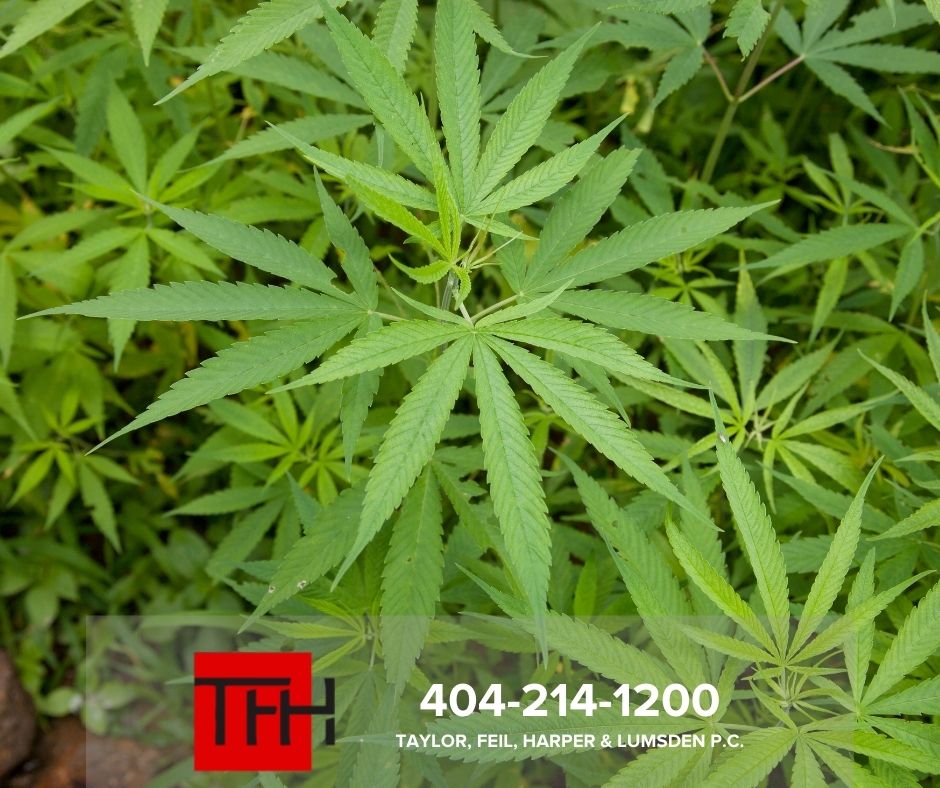By Connor Gatehouse, High School Intern
Edited by Lisa F. Harper, Esq.
Under the federal Controlled Substance Act (the “CSA”) (21 U.S.C. §812), certain substances are identified and classified into one of five schedules depending on the potential for abuse of the substance, the potential for dependence on the substance, as well as any current accepted medical use of the substance. Since 1970 cannabis has been classified as a Schedule 1 controlled substance, with certain exceptions for parts of the marijuana plant that are not considered cannabinoids. Under the law, Schedule 1 drugs are those with a high potential for abuse and no accepted medical use.
Consequently, although use of marijuana for recreational and/or for medical purposes is legal in a number of states, it is still not legal federally. That said, there are currently a number of bills that have been pending in the U.S. House of Representatives for some time regarding marijuana and federal legalization of its use through removing it from Schedule 1 of the CSA. A few of these bills include the MORE Act, the Regulate Marijuana Like Alcohol Act, Ending Federal Marijuana Prohibition Act of 2019, and the Marijuana Revenue and Regulation Act, each of which is summarized below.

MORE Act of 2019
- — This bill was introduced in the Senate on July 23rd, 2019.
- — It is sponsored by Kamala Harris and has 7 cosponsors
- — The latest action was on July 23rd, 2019, it was read twice and sent to the Committee on Finance.
- — This bill decriminalizes marijuana and removes it from the list of scheduled substances under the Controlled Substances Act. It also will expunge and seal previous nonviolent federal cannabis related arrests and convictions for those who are not currently serving their sentences. If they are still serving their sentences they have the opportunity to have their sentences reviewed, and possibly have their records expunged and sentences vacated. Unlike other marijuana bills, this sets up a community reinvestment grant program. This would fund health education, job training, youth mentoring programs, and legal aid “for individuals most adversely impacted” by the war on drugs. Though this bill decriminalizes marijuana at the federal level, this doesn’t mean it is legalized for recreational use across the country, states still have the power to decide whether or not they want to do this.
Regulate Marijuana Like Alcohol Act (Marijuana Revenue and Regulation Act is Identical)
- — This bill was introduced in the House on January 9th, 2019.
- — It is sponsored by Earl Blumenaur and has 4 cosponsors.
- —The latest action was on February 8th, 2019, the Committee on Agriculture referred it to the subcommittee on Conservation and Forestry.
- — This bill decriminalizes marijuana at the federal level and leaves states with the power to regulate marijuana that is similar to alcohol.
Ending Federal Marijuana Prohibition Act of 2019
- — This bill was introduced in the House on March 7th, 2019.
- — It is sponsored by Tulsi Gabbard and has 36 cosponsors.
- —The latest action was on April 8th, 2019, the Committee on the Judiciary referred it to the Subcommittee on Crime, Terrorism, and Homeland Security.
- — This bill removes cannabis from the Controlled Substances Act and allows states to make their own decisions regarding cannabis legalization. It also puts an end to federal cannabis prosecutions.
Marijuana Freedom and Opportunity Act
- — This bill was introduced in the Senate on May 20th, 2019.
- — It is sponsored by Charles Schumer and has 9 cosponsors.
- —The latest action was on May 20th, 2019, it was read twice and referred to the Committee on the Judiciary.
- — This bill removes marijuana from the list of scheduled substances under the Controlled Substances Act. It also eliminates criminal penalties for an individual who imports, exports, distributes, manufactures, or possesses with intent to distribute marijuana.
Marijuana 1-to-3 Act of 2019
- — This bill was introduced in the House on September 12th, 2019.
- — It is sponsored by Gregory Steube and has 1 cosponsor.
- —The latest action was on October 2nd, 2019, the Committee on the Judiciary referred it to the Subcommittee on Crime, Terrorism, and Homeland Security.
- — This bill is different from the others on this page, it moves Marijuana from Schedule I to Schedule III under the Controlled Substances Act. Schedule III Substances have an accepted medical use and can be prescribed. This bill would keep marijuana illegal for people who aren’t prescribed to it.
Although most of these bills have been pending for some time, federal marijuana status has recently come to the forefront as the House was scheduled to vote on the MORE Act in September. 2020. That vote, however, has been delayed in order to focus on COVID-19 matters.
Further, even if the MORE Act is eventually voted on and passed in the House, it has a long way to go to become law. To become law, a bill is introduced in either the House or the Senate. The bill then goes through a process of research, discussion, committee review, changes, and voting. If a bill passes in either the House or the Senate, it then goes to the other body to go through a similar process that occurred in the first body. Once both the House and the Senate vote to accept a bill, they must work out any differences between the two versions. Then both the House and the Senate vote on the same exact bill and, if it passes, they present it to the President. The bill then has to survive a possible Presidential veto to become law.
All of that said, in a likely intentionally slow and deliberate manner, bills can become law under our system, although in connection with any controversial bill, that can take some time. With the number of sponsors of bills to federally decriminalize marijuana, the number of already pending bills attempting to do so and the number of states which have legalized its use for various purposes despite the contrary federal law, federal decriminalization of cannabis seems inevitable, although it is impossible at this point to know when that may occur.
